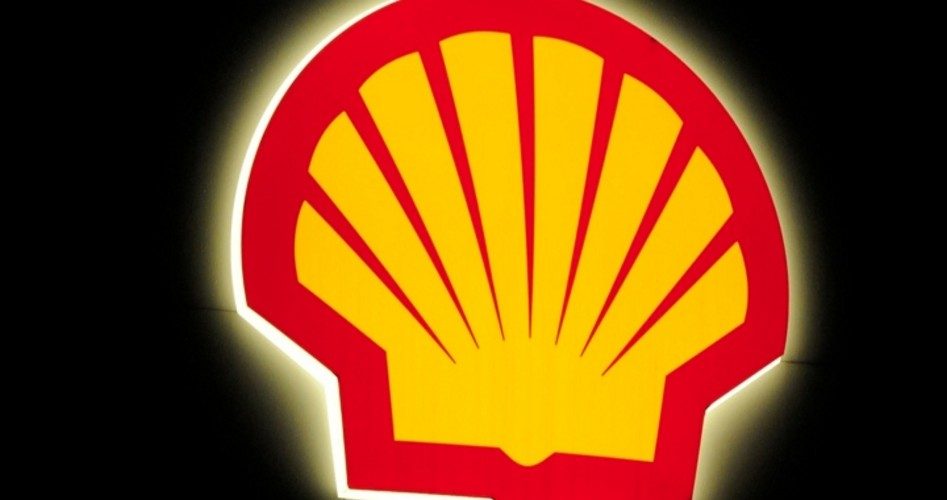
Royal Dutch Shell is seeking to pay a $1.4 billion debt it owes to Iran that it has been prevented from settling since a European Union embargo that started July 1.
A report from Platts news service on June 25 said that the EU embargo included a ban on oil imports and a ban on the provision of insurance for tankers shipping Iranian oil. Shell, as an Anglo-Dutch-owned company, is subject to EU jurisdiction.
With previous attempts by Shell to settle the debt blocked by the embargo, Shell is seeking to circumvent the roadblock by paying off the debt with grain.
U.S. Foundation for Defense of Democracies (FDD) head Mark Dubowitz said the United States and the U.K. are hesitant to agree to the deal because it may prompt other companies to do the same, reported AHN. But the two countries do not want to be accused of blocking humanitarian supplies for Iran.
“It’s a pretty complicated transaction that needs three sets of government approvals for an exception to sanctions covering banking, insurance, shipping and dealing with a banned Iranian counter-party, NIOC [National Iranian Oil Co.],” said Dubowitz.
A report in FoxBusiness.com said that Shell recently contacted U.S. commodities trader Cargill Inc. to pay for its deliveries of cereals to Iran in order to settle the debt, citing “people familiar with the matter.”
“But Cargill declined. It has its own financial channels to get paid and doesn’t need Shell,” one unidentified person was quoted.
A report from Reuters noted:
In the run-up to the July 1 EU oil embargo deadline Shell kept buying Iranian crude after its competitors had called a halt. In the summer it was denied permission by the UK government to pay Tehran direct via bank transfer. Sanctions bar European banks routing payments for oil back to Iran.
The report explained that the sanctions do not apply to deliveries of grains and other foods.
Aside from the EU, the United States has maintained sanctions of various sorts (and for various reasons) against Iran since 1979, when President Jimmy Carter issued Executive Order 12170 freezing about $12 billion in Iranian assets, including bank deposits, gold, and other properties, in retaliation for the seizing of the U.S. Embassy in Tehran by radicals and the taking of American hostages.
When Iran was invaded by Saddam Hussein’s Iraq back in 1980, the United States, fearing the spread of Iranian-style Islamic fundamentalism, sided with Iraq. In 1984, the United States imposed sanctions that prohibited weapons sales and all U.S. assistance to Iran. And in 1987, President Reagan issued Executive Order 12613 prohibiting the importation and exportation of any goods or services from Iran.
In June 2005, President George W. Bush issued Executive Order 13382 freezing the assets of individuals connected with Iran’s nuclear program.
On June 24, 2010, reports Wikipedia, the U.S. Senate and House of Representatives passed the Comprehensive Iran Sanctions, Accountability, and Divestment Act of 2010 (CISADA), which President Obama signed into law July 1, 2010. CISADA increased restrictions against Iran, and included the rescission of the authorization for Iranian-origin imports for articles such as rugs, pistachios, and caviar. President Obama followed up on those restrictions by means of three executive orders.
Western sanctions against Iran have been based on the Islamic nation’s stockpiling of enriched uranium, supposedly for the purpose of building nuclear weapons. However, Iran has been enriching uranium fuel only to a 20-percent level of U-235, which is required for a reactor in Tehran that is used to make medical isotopes. Weapons-grade uranium must be enriched to about 90 percent U-235.
Iran has responded to the many sanctions against it with characteristic bravado. “If you continue to add to the sanctions, we will stop our oil exports to the world,” Iran’s Minister of Petroleum Rostam Qasemi warned at an October 23 news conference in Dubai. “The lack of Iranian oil in the market would drastically add to the price.”
Reporters for Bloomberg quoted Simon Wardell, an energy researcher at Global Insight Inc., a London-based consultant, who said he’d be surprised if Iran followed through on Qasemi’s export warning.
“I suspect this is just an attempt to try and drive the price a little bit higher again in order to maximize the oil revenue, but it would be ultimately self-defeating,” Wardell said in a phone interview to Bloomberg. “It does indicate that they are under quite a bit of pressure.”
Many Americans have warned against the potential negative effects of imposing sanctions against Iran. For example, in a speech before the House of Representatives on April 22, 2010, Rep. Ron Paul (R-Texas) voiced opposition to H.R. 2194, the Comprehensive Iran Sanctions, Accountability and Divestment Act, referring to the legislation as “this entire push for war on Iran, however it is disguised.”
At that time, Rep. Paul drew parallels between the current push to isolate Iran and the events that led up to the U.S.-led invasion of Iraq in 2003: “Listening to the debate on the Floor on this motion and the underlying bill it feels as if we are back in 2002 all over again: the same falsehoods and distortions used to push the United States into a disastrous and unnecessary one trillion dollar war on Iraq are being trotted out again to lead us to what will likely be an even more disastrous and costly war on Iran. The parallels are astonishing.”
In a December 15, 2009 congressional speech against H.R. 2194, Rep. Paul demonstrated the value of not only knowing our history, but remembering important lessons drawn from our history:
In the late 1930s and the early 1940s the American people did not want to go into war. But there were some that were maneuvering us into war and they used the argument that you needed an event. So in June of 1941 sanctions were put against Japan, incidentally and ironically to prohibit oil products from going into Japan. Within 6 months there was the bombing of Pearl Harbor.
Photo: AP Images
Related articles:



